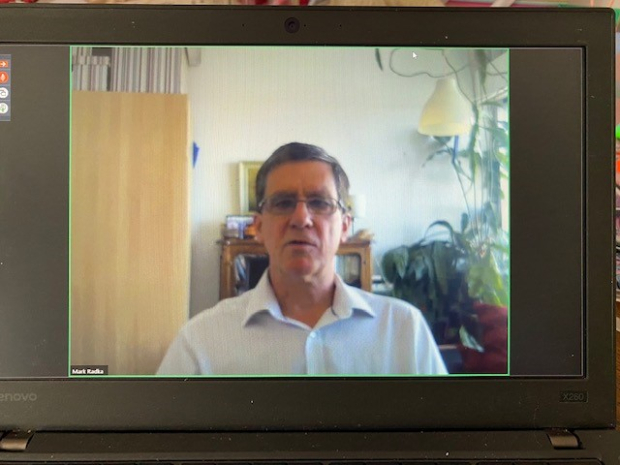Addressing methane emissions from oil and gas towards reaching the Paris Agreement targets
Discussion details

Representatives from the oil and gas industry, lawmakers, policymakers, and UNEP’s Mark Radka were brought together on the 9th September by the European Parliament Intergroup on ‘Climate Change, Biodiversity and Sustainable Development’, in the online event ‘Addressing methane emissions from oil & gas towards reaching the Paris Agreement targets’. The discussion could not have been better placed, stated at the beginning by Poppy Kalesi the Global Energy Director of the Environmental Defense Fund, as we work towards meeting international climate goals and await the upcoming launch of the European Commission’s methane strategy under the umbrella of the European Green Deal.
Methane is a powerful GHG, only second to CO2, but on a 20-year timescale it warms the planet 84 times more than carbon dioxide explained host MEP Katalin Cseh. Yet, the challenge of methane emissions remains largely undefined. Despite Europe being the largest importer of natural gas globally, Stefano Grassi Head of cabinet to Kadri Simson, European Commissioner for Energy admitted that methane emissions have received little attention from European policymakers in the past. Panellists expressed their excitement for the EU methane strategy to finally bring the urgent challenge of methane emissions into the spotlight, in Europe and beyond.
During the online event, head of UNEP’s Energy and Climate Branch, Mark Radka, outlined the role of UNEP in addressing methane emissions. He described UNEP’s broad partnership approach, bringing together the private sector, science-driven organisations and NGOs, and governments including the European Commission to address this common challenge. Despite striking many as an unlikely partner of the oil and gas industry, he explained that UNEP works closely with the industry recognising that the companies that produce, process and distribute natural gas have direct control over methane emissions, and the skills and the capability to reduce emissions.
Radka went on to outline the ‘Mineral Methane initiative’, under the Climate and Clean Air Coalition (CCAC), which aims to reduce methane emissions in the oil and gas sector by 45% by 2025, and by 60-75% by 2030. But how does UNEP work to make these reductions a reality? First, he explained, working with a variety of partners, UNEP coordinates methane science studies to reduce data uncertainties on methane emissions by directly measuring emissions from oil and gas infrastructure globally. Secondly, it provides support to countries that commit to putting ambitious methane reduction elements or targets in their nationally determined contributions under the Paris Agreement. And the third area of work Radka described, is a transparency and reporting framework for methane emissions, what he called the “gold standard” of methane emissions action and reporting. This framework will require member companies to report their methane emissions from all sources across the whole value chain, with the launch of the framework expected to significantly increase membership in the initiative.
The data from the reporting will be a key input in an expanded effort to accelerate reductions in fossil fuel methane emissions globally, with the potential to expand to other areas including agriculture. Agriculture was determined by other participants as another area where methane emissions urgently need to be addressed. In his intervention, Radka expressed his gratitude for the close partnership between UNEP and the European Commission in the development of this framework and praised the European Commission for their strong leadership in the area.
All participants communicated their thanks for the opportunity to participate in this online dialogue, as well as their agreement that the challenge of methane emissions needs to be addressed now. This included industry representatives Francisco Pablo de la Flor, Board Member, GIE (Gas Infrastructure Europe) and Dr. James Watson, Secretary General, Eurogas. Francisco highlighted that this is not a new concern for the oil and gas industry, addressing the case of methane emissions has long been a priority for employee safety, but now the opportunity has arisen for the industry to significantly contribute to the Paris Agreement at next to no net cost.
Participants concluded that legislation is needed on methane emissions from the oil and gas industry, and the European Green Deal offers the principle path to address this challenge. Participants also noted that this can only be achieved if we all work together.
“I am confident if the industry and decisionmakers join forces, we can together address the challenge of the methane emissions and the challenge of our century, climate change,” said MEP Katalin Cseh.
“In UNEP we are convinced that we can, by working together, achieve these goals globally. The key is rich partnerships which bring together organisations that have a shared goal but different skills, knowledge and experience,” added Radka. “We already have a good convergence of interest in this area, so nothing really prevents us from moving forward.”
The discussion ended on a Q&A, where Radka indicated that the Mineral Methane Initiative OGMP2.0 Framework will be launched in October.
The recording can be viewed here.
Log in with your EU Login account to post or comment on the platform.